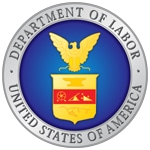
News Release
WASHINGTON – Many characterize union organizing campaigns as debates between management and labor over the impact of unionization on businesses and workers. Today, employers commonly engage third-party consultants in crafting and delivering anti-union messages to workers. Workers often do not know when employers engage consultants behind the scenes to influence their decisions. To address this lack of transparency, a new rule from the U.S. Department of Labor will require reporting of employer-consultant, or “persuader” agreements – to complement the information that unions already report on their organizing expenditures, resulting in better information for workers making decisions on whether or not to form a union or bargain collectively. “Workers should know who is behind an anti-union message. It’s a matter of basic fairness,” said U.S. Secretary of Labor Thomas E. Perez. “This new rule will allow workers to know whether the messages they’re hearing are coming directly from their employer or from a paid, third-party consultant. Full disclosure of persuader agreements gives workers the information they need to make informed choices about how they pursue their rights to organize and bargain collectively. As in all elections, more information means better decisions.” “This rule is about disclosure, and more disclosure here means more peaceful and stable labor-management relations. With workers having a better understanding of the true source of persuader communications, worker-supervisor and other workplace relationships are likely to proceed more smoothly no matter what is decided regarding union representation,” said Office of Labor-Management Standards Director Michael Hayes. The new rule interprets Section 203 of the Labor Management Reporting and Disclosure Act. The law requires labor organizations, consultants, and employers to file reports and disclose expenditures on labor-management activities. The law intends to prevent abuse, corruption, and improper practices by labor organizations, employers, and labor relations consultants alike. A longstanding loophole, however, allows employers to hire consultants to create materials, strategies and policies for organizing campaigns – and even to script managers’ communications with employees – without disclosing anything, as long as the consultant does not directly contact employees. The new rule closes the loophole to align the regulation with the statute, by requiring reporting on “actions, conduct or communications that are undertaken with an object, explicitly or implicitly, directly or indirectly, to affect an employee’s decisions regarding his or her representation or collective bargaining rights.” Under the same statute, unions already are required to make comprehensive public reports on their expenditures, including expenditures on union-organizing campaigns. The Federal Register will publish the new rule on March 24. The change will be applicable to arrangements, agreements, and payments made on or after July 1, 2016. The final rule and additional information is available on the OLMS website at http://www.dol.gov/olms/regs/compliance/ecr_finalrule.htm.
Related News
- Union Mourns the Loss of Brother Charles Harrison
- FRA Issues Grade-Crossing Safety Advisory
- Amtrak To Give SMART-TD Members Holiday Bonuses
- Value of Unions
- 2026 Railroad Retirement and Unemployment Insurance Tax Changes
- SMART-TD Members on UP Properties Ratify Five-Year Agreement
- Railroader’s Son to Perform at Carnegie Hall
- Rail Trespassing and Suicide Fatalities Up 70%
- Help the McLucas Family After Fire Destroys Their Home
- SMART-TD’s Chris Smith Wins City Council Seat in Tama, Iowa